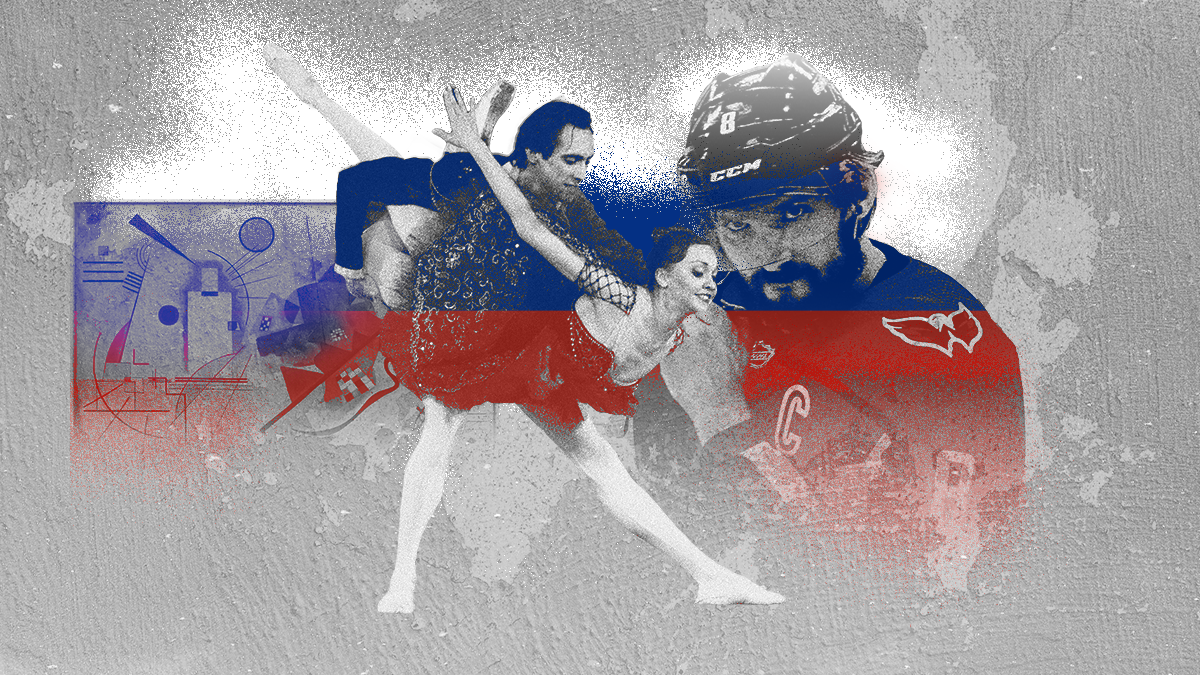January 17, 2023
What's Vladimir Putin’s war on Ukraine got to do with art? With sports? With work?
For almost a year now, prominent Russian artists and athletes have been banned from plying their trades internationally as part of the global response to Putin’s invasion. Within days of the outbreak of war, Russian national delegations were clipped from events ranging from the FIFA World Cup and the Olympic Games to the Eurovision Song Contest and the Cannes Film Festival.
At the same time, prominent Russian artists, such as Metropolitan Opera star soprano Anna Netrebko or Berlin Philharmonic conductor Valery Gergiev, lost their jobs after declining to explicitly distance themselves from Putin. The Bolshoi ballet, meanwhile, was bounced from a summer gig at the Royal Opera House in London.
Even the dead weren’t spared. Nutcracker composer Tchaikovsky was canceled in Cardiff, while avant-gardists, including Malevich and Kandinsky, were axed in Amsterdam.
With the war about to enter its second year, many of these bans remain in place.
“Everyone is on the side of supporting Ukraine,” said legendary soprano Renée Fleming, who shared her thoughts with GZERO during the Davos World Economic Forum. But at the same time Fleming recognized the costs for Russian artists who have lost opportunities.
“I feel sympathetic towards many of them,” she said, “because they have families at home. I do think it's been a sad thing, and certainly young Russian artists who've been caught in the crosshairs, who happened to already be studying in the US or who are already playing. We hope to keep supporting them and making sure that everybody gets a chance.”
(Check out our full, wide-ranging interview with Fleming here.)
So, should Russian artists and athletes continue to pay the price for Putin’s war? While banning official delegations of the Russian government seems fair enough, the murkier question is whether individual Russian performers and athletes should be held responsible as well.
The argument in favor says: Yes, it’s a moral duty to oppose destructive and unprovoked wars like this, even more so when they’re waged by people who govern in our names. This is as true of a singer or skater as it is of a plumber or a programmer, and people with larger platforms have an even greater moral obligation to use them for good. As prominent Russian-German pianist Igor Levit put it in an Instagram post early in the war: “Being a musician does not free you from being a citizen, from taking responsibility, from being a grown-up.”
The argument against says: No, forcing Russian passport-holders to take political positions as a condition of employment is a curiously undemocratic way to show support for Ukraine. After all, Russia has created its own blacklists of anti-war performers – do we really want to mirror that? What’s more, in a regime like Putin’s, where prominent dissidents can be jailed or worse, openly opposing the war or criticizing Putin might carry a high price not only for artists and athletes themselves, but for their families at home in Russia.
The standards aren’t consistent, of course. Wimbledon banned Russian tennis players altogether. The US and Australian Opens, meanwhile, permitted them to play if they arrived under a “neutral flag.” The Met in New York cut ties with Anna Netrebko despite her condemnation of the war (they said she had to “truly and completely disassociate herself from Putin over the long-term” in order to get her job back), but she’s still booked solid in Vienna, Milan, and Hong Kong. NHL superstar Alexander Ovechkin, meanwhile, continues to chase the all-time record for goals with the Washington Capitals, while using a photo of himself with Putin as his Instagram profile pic.
In sum, as always, it’s complicated: What do you think? Let us know here. We’ll gladly reprint a few of the best answers — please be sure to include your name as you’d like it to appear, and where you’re writing from.From Your Site Articles
More For You
Most Popular
Sponsored posts
Small businesses at a crossroads
Walmart sponsored posts
Walmart’s $1 billion investment is strengthening associate careers
Ukraine's President Volodymyr Zelenskiy, Finland's President Alexander Stubb, Estonia’s Prime Minister, President of the European Commission Ursula von der Leyen and other European leaders visit memorial to fallen Ukrainian defenders at the Independent Square on the fourth anniversary of Russia's full-scale invasion, in Kyiv, Ukraine February 24, 2026.
Ukrainian Presidential Press Service/Handout via REUTERS
Somewhere in the Donbas region, Ukrainian soldier Artem Bondarenko says he hasn’t slept through the night in months as he defends Eastern Ukraine.
- YouTube
In the latest episode of Vladimir Putin and Xi Jinping's hit wellness podcast This Authoritarian Life, we learn how positive communication patterns can break negative cycles in our relationships -- especially our relationships with Iran, Syria, Venezuela, and Cuba. #PUPPETREGIME
People inspect the damage at the site of an Israeli strike on Friday, in Bednayel, Bekaa valley, Lebanon, February 21, 2026.
REUTERS/Mohamed Azakir
Israel indirectly warned Lebanon that it would strike its northern neighbor hard if the Iran-backed militia group Hezbollah gets involved in any future US-Iran conflict, two Lebanese officials told Reuters.
© 2025 GZERO Media. All Rights Reserved | A Eurasia Group media company.
